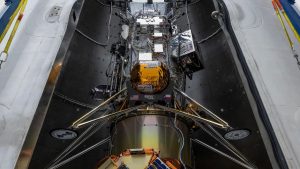Government set to announce construction of parts of HS2 will be delayed in bid to cut costs
The government is set to announce the construction of sections of HS2 will be delayed to save money, Sky News understands.
The high-speed railway was initially set to link London and the West Midlands with a further phase extending to cities in the North.
However, it is thought the delay will affect the northwest section of the railway, from Birmingham to Crewe, and then from Crewe to Manchester.
Design teams working on the London section in Euston may also be affected and contractors are looking at whether they need to redeploy staff from that site.
Delivery of the high-speed railway has been a core pledge of the Conservative government but it has been plagued by delays and ever-increasing costs – from estimates of about £33bn in 2010 to at least £71bn.
It is Britain’s biggest infrastructure project and has had support from governments of all stripes since it was first mooted more than a decade ago.
But last month, the government was reportedly planning to make drastic changes that would almost halve the number of high-speed trains per hour and services would travel slower to save money.
The Department for Transport (DfT) said at the time it “does not comment on speculation” and said the government “remain committed to delivering the project”.
In January, Chancellor Jeremy Hunt said he did not see “any conceivable circumstance” the original plan would not be followed after reports the high-speed line could stop before reaching central London.
There were claims the last leg of HS2 into Euston could be scrapped and replaced with a new hub at Old Oak Common in the suburbs of northwest London.
The government did not deny the reports or that a two to five-year delay to the entire project – currently due to be completed between 2029 and 2033 – was being considered due to record high inflation impacting costs.




